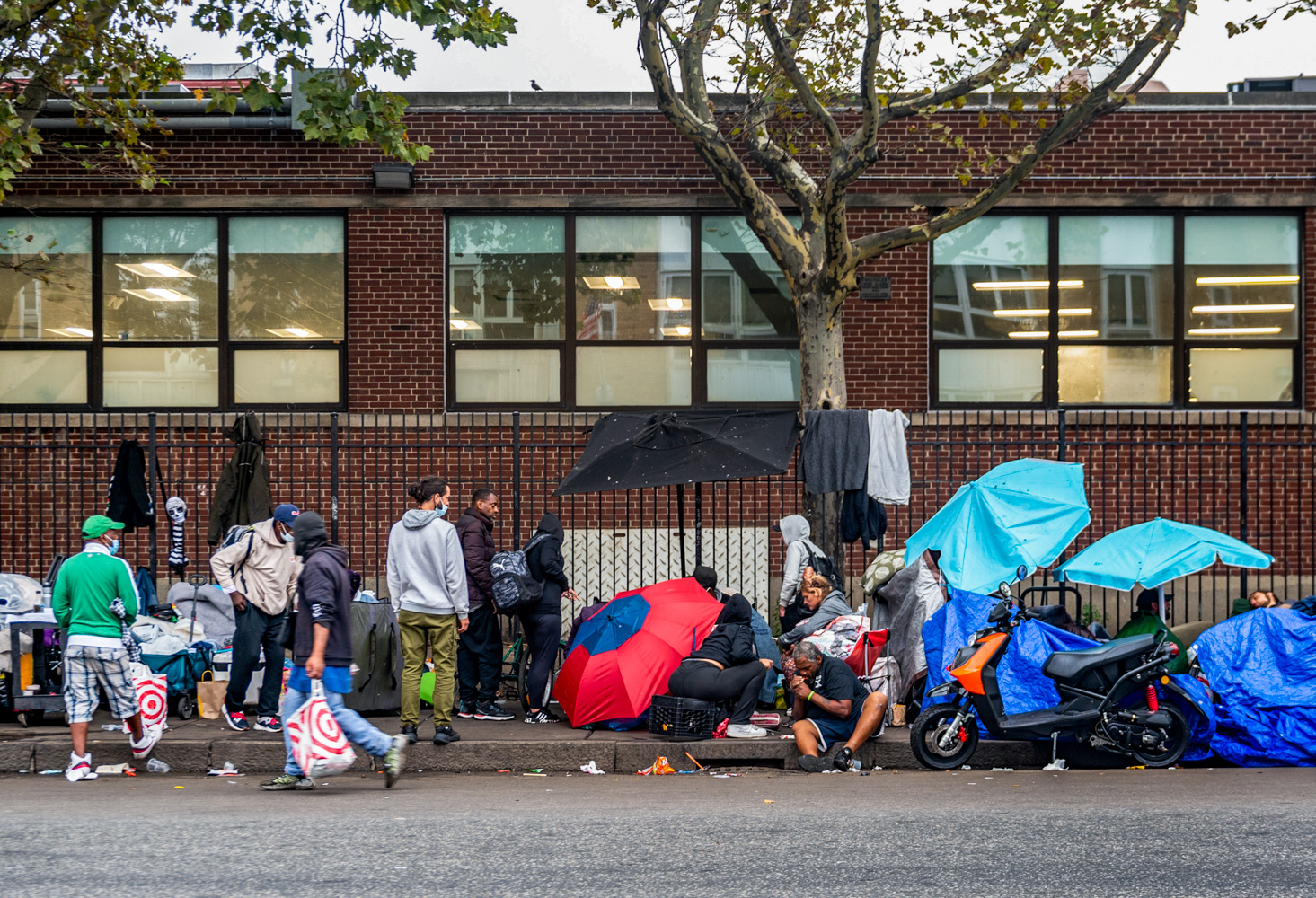
Months after the January clearing of homeless encampments at the intersection of Massachusetts Avenue and Melnea Cass Boulevard — often referred to by locals as “Mass and Cass” — the intersection is starting to see a returning population of unhoused people.
Howard Koh, professor at the Harvard T. H. Chan School of Public Health, called the “increasingly pressing and visible crisis” of Mass and Cass in need of more action despite “robust coordination” from Mayor Michelle Wu and other officials.
The City of Boston released their Long-Term Public Health Strategic Outlook plan in May, before the encampments grew to current numbers, detailing plans to continue transitional housing efforts.
As of Monday, Sept. 26, 57 people have been moved to permanent houses from the six low-threshold sites — trailer-like temporary homes installed by the city — since January according to the City. Additionally, the City recorded 380 people have been temporarily housed at the low-threshold sites this year.
In a May press conference, Wu discussed the City’s warm weather plan for Mass and Cass. The mayor said the City’s response is “not just about making sure that recovery resources are available, but also accessible.”
The Daily Free Press reached out to City Hall for more recent updates and was redirected to the May press conference.
The City has not announced any new initiatives for tackling specifically Mass and Cass, but the Mayor’s Office of Housing announced a request for affordable housing proposals with up to $50 million backing from MOH, Community Preservation Fund and The Neighborhood Housing Trust Fund on Sept. 19. There are also nine affordable housing projects in Boston currently funded by the state.
Although Koh said the City made “substantial progress since January” on the Mass and Cass situation, some Boston locals like Domingos DaRosa, co-founder of the South End-Roxbury Community Partnership, a neighborhood advocacy organization, said that politicians pledged to help Mass and Cass but were “not actually putting things in place to implement change.”
“There’s no political will in Boston to truly address this issue,” DaRosa said. “It was a talking point during the elections, but it was never something that they wanted to resolve, because it’s not a photo op.”
Koh emphasized the importance of the humanity of the people at Mass and Cass.
“These are very vulnerable people that society has counted least and put last, and we just cannot allow that to continue to happen,” Koh said. “Each of us needs to do more to address it.”
Bella Ramirez contributed to the reporting of this article.